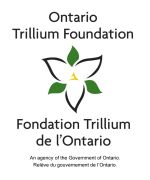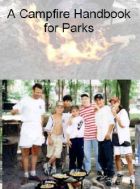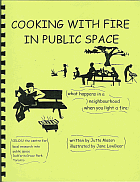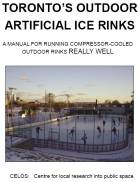

Pages in this Folder:

Related Folders:
See also Department Site Map
Support Provided by

Toronto Parks and Trees Foundation

This website has received support from celos.ca through the Trillium foundation.
Publications
Comments?
For the basics, see
- Website & Privacy Policies
- How To Get Involved
- The Role of the Park
Search options:
Department Site Map
Custodians:
From: Jutta Mason
To: Kelvin Seow, Ana Bailao
CC:Staff <staff@dufferinpark.ca>
Date: September 11, 2011
CELOS PROPOSAL
September 12 2011.
Pilot project in local governance: Stage One . Winter 2011/2012
Kelvin Seow to Belinda Cole, August 16 2011:
“We will also be setting up meetings with staff and Jutta to work on a pilot to move Wallace and Campbell food activities over to City control. We hope to use this pilot as a learning experience. We will also like to build an action/ work plan to transition the food and skate activities at Dufferin Grove over to the City. It is also our intent to consult the community, staff and CELOS as we build this plan and move forward in resolving these matters to the City's satisfaction and not affecting the unique programming at Dufferin Grove.”
Pilot project location: Wallace, Campbell and Dufferin rinks
Background: these rinks have been linked as a cluster through sharing staffing and expertise since 2008. They have the following similar features:
(a) strongly neighbourhood-based\\
(b) mostly public drop-in-skating \\
(c) an unusually large youth and newcomer constituency
(d) program similarities e.g. healthy food, skate lending, family corner and campfire programs
(e) vocal community involvement
(f) staff that are knowledgeable about coordinating all these elements
(g) supportive city councillor
Project:
(a) to transfer food and skate lending programs to City operations without negative effects for rink users and the staff who have helped to develop these programs for the past ten years
(b) to build operational knowledge among rink users
(c) to enlarge the collaboration between rink users and rink staff in rink operations
TRANSITION PRINCIPLE AND TIMELINE:
The transition principle is to support existing rink programs with PWYC fundraising as a trial, with the funds going to the City in place of tax increases or program cuts.
%\\
(a) August 22, 2011: all program workers are PT recreation staff paid by the City.
(b) August 29, 2011: CELOS begins transferring all fundraising income to the City, after CELOS directs necessary funds toward expenses (e.g. groceries, supplies, additional rink program features not yet considered for transition).
(c) September 19, 2011: CELOS sets up separate Quickbooks account for all Ward 18 rinks fundraising operations (with the assistance of Minesh Chauhan, B.A. in Accounting). Minesh trains senior PT rink staff and CRP in weekly Quickbooks posting and monitoring. Weekly Quickbooks reports are sent to PFR management, posted on the CELOS website, linked on Cityrinks.ca, posted on a bulletin board at each rink.
(d) September 26: CELOS has a special board meeting to approve changes and move activities from practical rink research to reporting.
(e) Rink opening day celebrations (Nov.18 for Dufferin, Dec.2 for Wallace and Campbell): PFR staff/CELOS make displays at each rink about the pilot project, inviting participation
(f) Middle of January: the first three meetings of rink users/PFR staff / City Councillor, one at each of the rinks, to discuss progress
(g) Middle of February: follow-up rink user/PFR staff/City Councillor meetings, at each of the three rinks, to discuss report to Council, recommend “resource group” or conservancy
(h) April 2012: City Councillor/PFR staff/CELOS introduces findings to Standing Committees.
Principles to help Stage One succeed:
(This section borrows from the work of Professor Elinor Ostrom, winner of the 2009 Nobel Prize for “governing the commons,” and Adam Michnik, Polish Trade Union strategist ) Prof.Ostrom’s ‘design principles’ are in bold italics.
1. Continuous public access to detailed information:
(a) Shared, straightforward communication between PFR staff and rink users (no silos, no secrets)
(b) Public education, PFR staff and CELOS collaborate in using the “real costs” model based on the City's "Full Costing and Pricing Study" http://celos.ca/wiki/uploads/FinancialDocumentation/FullCostingReview-Dec12-07FINAL.pdf to show how much the Ward 18 rinks cost to operate, including all direct and indirect staffing and energy costs – with the information posted on websites and at the rinks
(c) Weekly reports on all relevant rink operations details, “no surprises.”
2. Unrestricted local collaboration:
(a) Collective-choice arrangements, with most people affected by the rules able to participate in modifying the operational rules. This includes rink users and PT staff whose work is located at these three rinks.
(b) Promotion of constructive criticism (distinguishing it from negative criticism), between all parties. Criticism includes careful gathering of detailed evidence for one's critique (good documentation). "Constructive" is defined as offering positive alternatives to a policy, procedure, or a program that is perceived as not working well. As much scope as possible is given to trying out such alternatives. See Belinda Cole’s list:
Policy-making Principles.
(c) Recognition of the right to develop or adapt operating rules to local circumstances. This includes distinguishing donated performances from permitted events, if these in-kind donations enhance city programs. It also includes distinguishing donated skill sessions and socially-oriented community programs from group permits. Successful trial programs that become a staple with broad community acceptance should be added to the paid programming, supported by targeted community fundraising. See donation policy: donation policy (pdf).
3. Monitoring:
(a) Monitors, who actively audit rink conditions and appropriate behaviour, must be accountable to rink users or must be the rink users. This includes as-needed discussions between on site rink staff (Local 79 and Local 416) and rink users, to share information and follow up.
4. Trust:
(a) Mistrust is very expensive. The following policy items in Kelvin Seow’s letter to Belinda Cole are based on mistrust: Inventory: Reconciliation of Purchases to Inventory and Inventory to Sales. Process to verify the purchase of goods to inventory and to sales or other usages. Physical controls must be established to manage inventory - e.g. lockable cabinets for food stock. Timely investigation of inventory and cash shortages. Procedures established to investigate inventory shortages. These city policies, designed for a larger institutional context, simply don't work on the local scale. The extra staff costs to implement unnecessary policies will be prohibitive, and threaten programs that work well at the rinks.
(b) An “outcome-based” approach is a cheaper and friendlier alternative, providing continuous public information about the gathering and spending of program-related donations. (See “transition timeline,” page 1.) Trust can be enhanced by consulting experts in related fields, e.g. chefs and skate rental operators, to compare our rink food and skate-lending results with industry standards.






 Printer friendly version
Printer friendly version